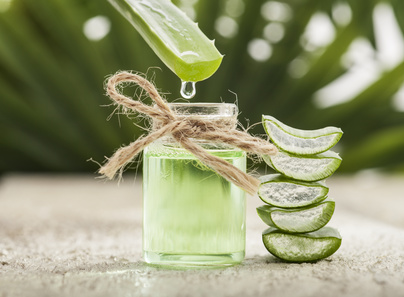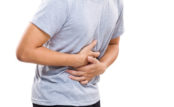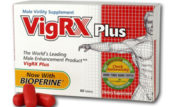 I am not a happy camper ’til I get my coffee in the morning. Research suggests I’m not alone – about 85% of adults get some form of caffeine each day. So recent news that coffee might trigger hot flashes in menopausal women ain’t all that welcome. But the trade off, of the sudden bursts of heat from hot flashes, isn’t much better.
I am not a happy camper ’til I get my coffee in the morning. Research suggests I’m not alone – about 85% of adults get some form of caffeine each day. So recent news that coffee might trigger hot flashes in menopausal women ain’t all that welcome. But the trade off, of the sudden bursts of heat from hot flashes, isn’t much better.
If it’s any consolation, the findings suggest that only women in late menopause are affected. Caffeine appears to actually help women in perimenopause – early stages of menopause, with improved mood and energy. Hot flashes tend to taper off with time as well, meaning you’ll probably just need to give it up short-term.
Still, the link is there. More than two-thirds of American women will experience hot flashes at some point. This new data suggests many of them should hold off the Joe temporarily – at least until their menopause symptoms let up. That’s not the most pleasant thing to do, so we’ll discuss some alternatives to coffee until it’s safe to start sipping again.
Study: Coffee Linked to More Severe Hot Flashes
This isn’t the first study to explore the link between coffee and menopause symptoms. Nor is it definitive – but it’s a flag planted firmly in the camp that believes women in later stages of menopause should hold off on caffeine.
The findings are from a poll conducted by the Mayo Clinic, of more than 1,800 menopausal women between 2005 and 2011, in which researchers compared menopause symptoms of caffeine drinkers to those who didn’t partake in caffeine.
No surprises here. Caffeine has long been on the list of hot flash offenders – whether as coffee or other caffeine-rich sources – along with hot beverages, spicy foods, alcohol and tobacco. This most recent evidence simply suggests caffeine belongs on that list, and that women in late menopause might want to make this temporary adjustment until their hot flashes reduce in severity.
The findings are published in the July 23 edition of the journal Menopause.
Hot Flashes Are Part Of Your Body’s Cooling System
A hot flash is a quick feeling of heat, sometimes with a red, flushed face and sweating. They’re the most common of menopause symptoms, caused by blood vessels just beneath the skin’s surface that dilate to cool the body during this transitional time.
Note that sweating is another common symptom of menopause – hence the dreaded nightsweats that many women experience – and/or rapid heart rate with chills. They’re all part of your body’s cooling system as the body adjusts to shifting hormones and makes ‘the change’. These symptoms usually taper off, both with intensity and frequency, though in some women, they can remain for longer.
While you probably can’t avoid hot flashes completely, you can at least manage these and related menopause symptoms by avoiding hot flash triggers like caffeine and alcohol. Heat, tight clothing and stress are further triggers for many women that should be managed.
How to Reduce Hot Flashes
There’s no generic solution for hot flashes. Some women find a natural libido supplement like Provestra can help because it’s formulated with black cohosh root – long used as a natural remedy for menopause symptoms and with growing support in the health community.
A few more ways to manage hot flashes:
 Stay Cool – Keep your bedroom cool at night. This isn’t just good sleep hygiene, it’s also a good way to minimize hot flashes and night sweats. Use a fan both during the day and at night if possible. Wear multiple layers of light cotton that you can easily shed if you quickly get hot. And consider using a chill pillow.
Stay Cool – Keep your bedroom cool at night. This isn’t just good sleep hygiene, it’s also a good way to minimize hot flashes and night sweats. Use a fan both during the day and at night if possible. Wear multiple layers of light cotton that you can easily shed if you quickly get hot. And consider using a chill pillow.
Breathe Slowly – Take slow, deep breaths from your abdomen, roughly six to eight times a minute. Practice this for 15 minutes in the morning and again in the evening and when your hot flashes act up.
Exercise Daily – The authors of the coffee study mention that keeping a healthy Body Mass Index (BMI) can ease the discomfort of menopause symptoms. That’s easier to achieve with regular exercise: try walking, cycling, swimming or dancing. Just move – and do it daily.
You can also discuss hormone replacement therapy (HRT) with your doctor, though the rumblings of breast cancer are never too far away with this option – something I’ve written about extensively here at Natural Health Source. You might consider natural alternatives to HRT with your doctor’s approval, or even hypnosis.
The Menopause Diet
Another tool in your menopause toolkit, diet plays a significant role in hot flash prevention, or at least your ability to make them bearable and short-term. The menopause diet includes:
Calcium-Rich Foods – Women going through menopause generally need more calcium than in previous years. The National Institutes of Health recommends 1,200 of calcium daily, preferably through diet rather than supplements. Think dairy, fish, broccoli and legumes.
Pump Some Iron – You’ll want to eat at least three daily servings of iron-rich foods during menopause. Do that with lean red meat, poultry, eggs, leafy green vegetables, nuts and enriched grains.
Soy Might Help – Studies are back and forth on soy and its potential as a remedy for hot flashes, with current buzz suggesting it has a beneficial effect. A rich source of isoflavones (plant estrogens), soy might help, along with tofu and soy milk.
Water, Water Everywhere – You really can’t go wrong with drinking water, and this is especially true for menopausal women. Aim for eight glasses a day.
Eat Less Fat – Try to limit fats at 35% of your diet. Cholesterol-raising and heart-unhealthy saturated fats should be lower, at just 7% of your daily intake. That means cutting back on fatty meats, whole milk, ice cream (sorry!) and cheese. Trans fats are out too – they’re found in vegetable oils, many baked goods and some margarines.
Avoid Salt and Sugar – The sodium-heavy diet may lead to high blood pressure. Processed meats fall into this category, along with smoked, salt-cured and charbroiled foods becuause they’re high in nitrates and are linked to cancer.
Alternatives to Coffee
Personally, I’d consider it cruel and unusual punishment to go without my morning java. If you’ve made it this far, you may be facing a rather bleary choice: no coffee or risk hot flashes. That ain’t much fun, but keep in mind it’s a short-term sacrifice. Assuming they don’t trigger your symptoms, try these alternatives to coffee to make life a little more pleasant.
 Hot Maca: Blend a few tablespoons of maca into a warm glass of almond milk. Add a little honey and ground cinnamon and you may at least partly forget your caffeine-less haze.
Hot Maca: Blend a few tablespoons of maca into a warm glass of almond milk. Add a little honey and ground cinnamon and you may at least partly forget your caffeine-less haze.
Matcha Green Tea: Available as a powder, matcha green tea is all the rage in health circles because it’s rich in antioxidants. Matcha green tea detoxifies and boosts energy too, possibly even more than herbal teas.
Lemon Water: Need a jolt NOW? Warm a glass of water and add a lemon wedge. Sexy? No – but it’s a healthy warm drink in the morning.




